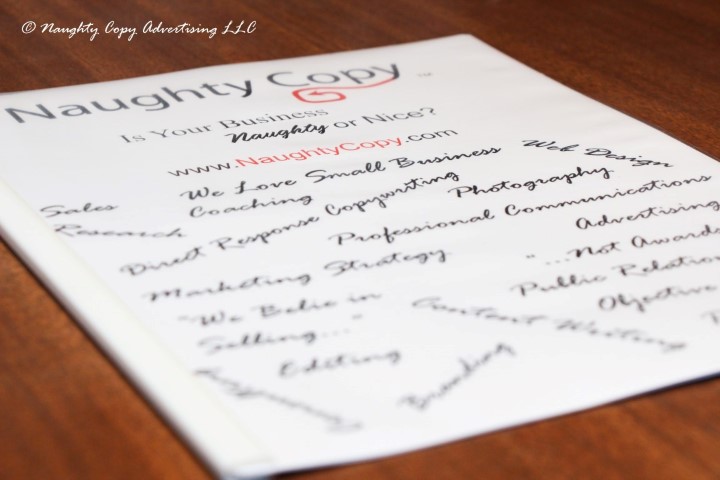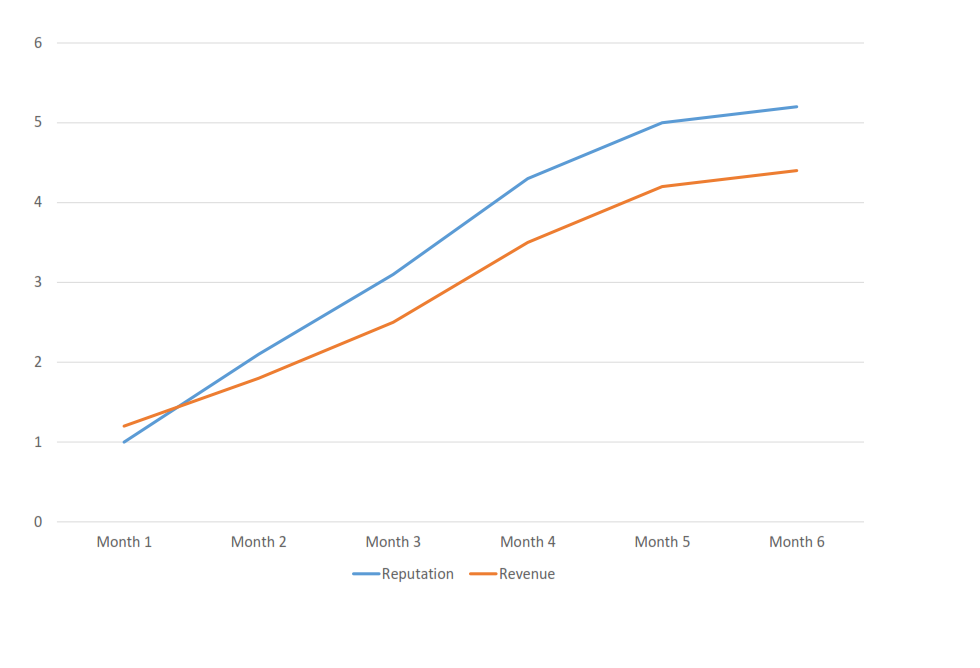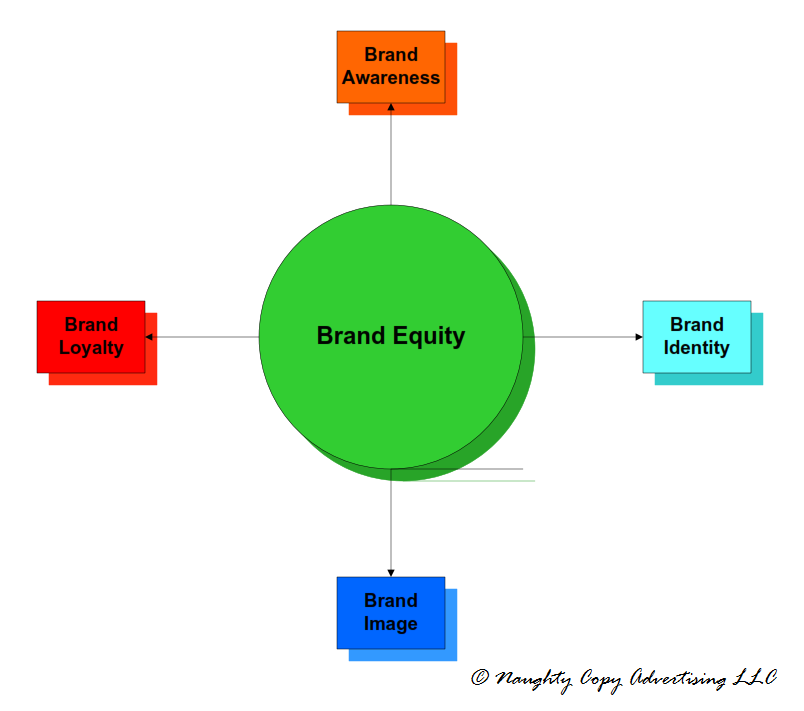Brand:
A brand is the sum of your brand image and brand identity , it is the emotional connection the brand has with the public, the way they perceive it, what they think about it, your logo, word mark(s), tag line, typeface, quality/price of your products & services, essentially it is everything with the exception of your personal reputation. Without your brand, you are essentially just a nameless, faceless, generic business.

Cost:
A brand's identity is the way in which the brand wishes to be perceived visually. It consists of the business's/company's: logo, typeface, colors, taglines, and other visual guidelines that are used to identify the brand instantly. For example, if you are looking for a BMW vehicle in a parking lot, you immediately associate it with the blue and white roundel (their logo), and that's what you will look for in identifying/distinguishing a BMW from other makes. Likewise if you ask someone about the BMW brand itself, they will likely remark off the top of their head that they are "the ultimate driving machine," which is their tagline.
A brand with an excellent brand identity is easily remembered, distinguishable, identifiable, and liked by the public. For these reasons, brands have strict guidelines, which must be adhered to because inconsistencies in the brand's identity confuse public perception and weaken the brand authenticity. In other words imagine if BMW changed their roundel to black and white on one car, then red and blue on another, and green and yellow on yet another vehicle. This lack of consistency results in the public being unsure if the vehicle is still a BMW or if itís something else or worse perhaps an imitation/knockoff which dilutes the brand's authenticity/exclusivity.
However, a brand's identity also consists of the brand's personality and the way you intend it to be perceived. Think of a brand's identity as being the internal perception & goals of the brand, whereas a brand's image is how the public perceives the brand. In others words, the brand's identity is who you are, and the brand image is the way people perceive you. The goal is to create an identity that matches the way you are perceived. Herein lies the difficult problem of having your brand identity and brand image match. For example, simply because BMW advertises their vehicles as the "ultimate driving machine," it does not mean that the public views their vehicles as the 'ultimate driving machine.' In other words, it is also necessary that they create vehicles that the public will perceive as the "ultimate driving machine" for their brand's identity to be consistent with their brand's image.
Basically your brand's identity is made up of two parts:
1) The Visual: typeface, logo, tagline, etc.
2) The Characteristics of the Brand: what the brand is known for, the products or services it offers, the quality of these services or products, what distinguishes it from other brands, how it functions, and any other elements/aspects that make up the internals of the business that is independent from external observers/perception.
Fortunately, you can control both the brand's visual identity and characteristics (brand identity) and adjust them, so it is consistent with the way in which you want the public to perceive your brand (brand image).
A brand with an excellent brand identity is easily remembered, distinguishable, identifiable, and liked by the public. For these reasons, brands have strict guidelines, which must be adhered to because inconsistencies in the brand's identity confuse public perception and weaken the brand authenticity. In other words imagine if BMW changed their roundel to black and white on one car, then red and blue on another, and green and yellow on yet another vehicle. This lack of consistency results in the public being unsure if the vehicle is still a BMW or if itís something else or worse perhaps an imitation/knockoff which dilutes the brand's authenticity/exclusivity.
However, a brand's identity also consists of the brand's personality and the way you intend it to be perceived. Think of a brand's identity as being the internal perception & goals of the brand, whereas a brand's image is how the public perceives the brand. In others words, the brand's identity is who you are, and the brand image is the way people perceive you. The goal is to create an identity that matches the way you are perceived. Herein lies the difficult problem of having your brand identity and brand image match. For example, simply because BMW advertises their vehicles as the "ultimate driving machine," it does not mean that the public views their vehicles as the 'ultimate driving machine.' In other words, it is also necessary that they create vehicles that the public will perceive as the "ultimate driving machine" for their brand's identity to be consistent with their brand's image.
Basically your brand's identity is made up of two parts:
1) The Visual: typeface, logo, tagline, etc.
2) The Characteristics of the Brand: what the brand is known for, the products or services it offers, the quality of these services or products, what distinguishes it from other brands, how it functions, and any other elements/aspects that make up the internals of the business that is independent from external observers/perception.
Fortunately, you can control both the brand's visual identity and characteristics (brand identity) and adjust them, so it is consistent with the way in which you want the public to perceive your brand (brand image).
Brand Identity:
Although similar, your brand's image is not your reputation, but more specifically it is your brand's reputation. Yes, this is confusing, but it is used to distinguish between an individual's personal reputation and a business's business practice independent of its products or service. For example, let's say you are a top level builder that builds quality houses, but one day you decide to post something inappropriate/controversial online, and it causes outrage. Fortunately for you, those that didn't see your post will continue to use your services and those that heard second hand won't likely care because they still want quality service. However, your brand's reputation is permanently tarnished, and you will likely see an immediate reduction in sales from those that took offense to your online comments. It is one of the reasons why businesses strive to stay politically neutral since profit is the goal of all businesses. In other words, as a business it's best to leave other endeavors such as politics, religion, etc to individuals and organization whose primary goal is not profit.
Brand Image:
Your personal and professional life are intrinsically linked. Some argue that this is not the case or should not be the case, but in American culture, it is the case and the existence and need for public relations is proof of this concept. For example, why should you/your business care that your manufacturer produces your products in a sweat shop, beats their employees, and makes huge profits doing so, if you sell a quality product? Apparently many people do care, and sales suffered for many companies that participated in this type of business practice. However, with good public relations and adjustments made to business practices a brand can overcome any reputation issues that decreases sales.
Reputation:
Reputation (the business's/individual's reputation independent of the brand)
Conversely, one's reputation can overcome their brand's image, but this is not the ideal situation (a brand is stronger than a reputation).
For example:
1) Let's say your business does a lot of charitable work in the community.
2) On the other hand, your competitor's does not participate in the community, and they don't have a stellar reputation or have a nonexistent reputation.
This will likely result in people selecting the business with the better reputation than the business with a nonexistent reputation.
The ideal situation: both your reputation and the brand's image are stellar, so the general public will not find reasons to not use your service(s) or purchase your product(s).
For example:
1) Let's say your business does a lot of charitable work in the community.
2) On the other hand, your competitor's does not participate in the community, and they don't have a stellar reputation or have a nonexistent reputation.
This will likely result in people selecting the business with the better reputation than the business with a nonexistent reputation.
The ideal situation: both your reputation and the brand's image are stellar, so the general public will not find reasons to not use your service(s) or purchase your product(s).
Creating a strong brand builds equity in the brand, meaning that the brand has come to stand for something that the general public like and trust. For example, there are many cola companies, but the two most recognized, trusted, and popular brands are Pepsi and Coca-Cola
As seen in the above cola example, most people are familiar with both brands and know that some people prefer Coke and others Pepsi even though they are essentially the same tasting drink. The same applies to rivals like Ford & Chevrolet or BMW & Mercedes: each brand has its loyal followers that are committed to the brand for any number of reasons even if the competitor offers better value.
It is very important to keep loyal clients/customers coming back by letting them know they are appreciated. This is often done through loyalty/rewards programs or small gifts of appreciation.
It is very important to keep loyal clients/customers coming back by letting them know they are appreciated. This is often done through loyalty/rewards programs or small gifts of appreciation.
Brand awareness is essentially how easily/prevalent the general public recognize/identify your brand and/or products/services. For example, let's say your target audience consist of 5 people; your goal is to make all 5 of those people aware of your brand. Brand awareness is useful especially when your target audience is only aware of your brand, or your brand is at the top of their mind. For example, you are a motor oil manufacturer, and a customer needs a quart of oil to top off their engine, they go to a retailer that sells multiple motor oil brands including yours, and they must decide which one to pick. If they are familiar with your brand already (all things being equal: price in particular) the consumer is likely to purchase the brand they are familiar with or decide betweens the brands that are familiar.
A scenario where the consumer is unfamiliar with any of the brands (all things being equal) the consumer will likely purchase the brand with the best branding in terms of product packaging (in the example above, bottle labeling).
A scenario where the consumer is unfamiliar with any of the brands (all things being equal) the consumer will likely purchase the brand with the best branding in terms of product packaging (in the example above, bottle labeling).
Brand positioning is where your brand is in the minds of your target audience. For example, perhaps you want your brand to be known as the convenient brand or simple brand, etc.
Your brand strategy will determine where you would like your brand positioned in the minds of your target audience relative to your competitors. For example, Mercedes-Benz represents luxury, while Honda represents reliability.
Your brand strategy will determine where you would like your brand positioned in the minds of your target audience relative to your competitors. For example, Mercedes-Benz represents luxury, while Honda represents reliability.
$60 per hour or by the project.
Click Here to Contact Us for a quote
Click Here to Contact Us for a quote
Brand Equity
Brand Loyalty
Brand Awareness
Brand Positioning

• Brand strategy
• Brand Planning
• Brand Management
• Logo & Visual Identity
• Rebranding
• Brand Planning
• Brand Management
• Logo & Visual Identity
• Rebranding
Brand Image vs Reputation
Branding answers: the "who are you" in business? It identifies and distinguishes your business or product so both customers and consumers can attribute either positive or negative characteristics to your brand.
Is branding necessary?
Yes, branding is necessary. Many businesses think of branding in the narrow sense as the components that make up the brand's visual identity alone (your colors, typeface, and logo). However, it should also be thought of in the broad sense. In other words, think of branding as a well thought out idea and strategy rather than the brand's visual identity alone.
The goal of a successful brand considers marketability and future proofing as its main priorities.
Most importantly don't let a graphic designer dictate your brand, let real business people create a brand and brand strategy that will grow with you and your business. Schedule an appointment with us today.
Is branding necessary?
Yes, branding is necessary. Many businesses think of branding in the narrow sense as the components that make up the brand's visual identity alone (your colors, typeface, and logo). However, it should also be thought of in the broad sense. In other words, think of branding as a well thought out idea and strategy rather than the brand's visual identity alone.
The goal of a successful brand considers marketability and future proofing as its main priorities.
Most importantly don't let a graphic designer dictate your brand, let real business people create a brand and brand strategy that will grow with you and your business. Schedule an appointment with us today.
Branding:






#FF0000
RGB 255, 0, 0
CMYK 1 0 1
RGB 255, 0, 0
CMYK 1 0 1
#000000
RGB 0, 0, 0
CMYK 0 0 0
RGB 0, 0, 0
CMYK 0 0 0
















Your brand images is what your brand has come to represent:
• Quality Or Lack of Quality
• Price: Expensive Or Inexpensive
• Honesty Or Deception
• Reliable Or Not Reliable
• Excellent Customer Service Or Poor
Customer Service
• Price: Expensive Or Inexpensive
• Honesty Or Deception
• Reliable Or Not Reliable
• Excellent Customer Service Or Poor
Customer Service
Reviews:



Is your target audience aware of your brand?